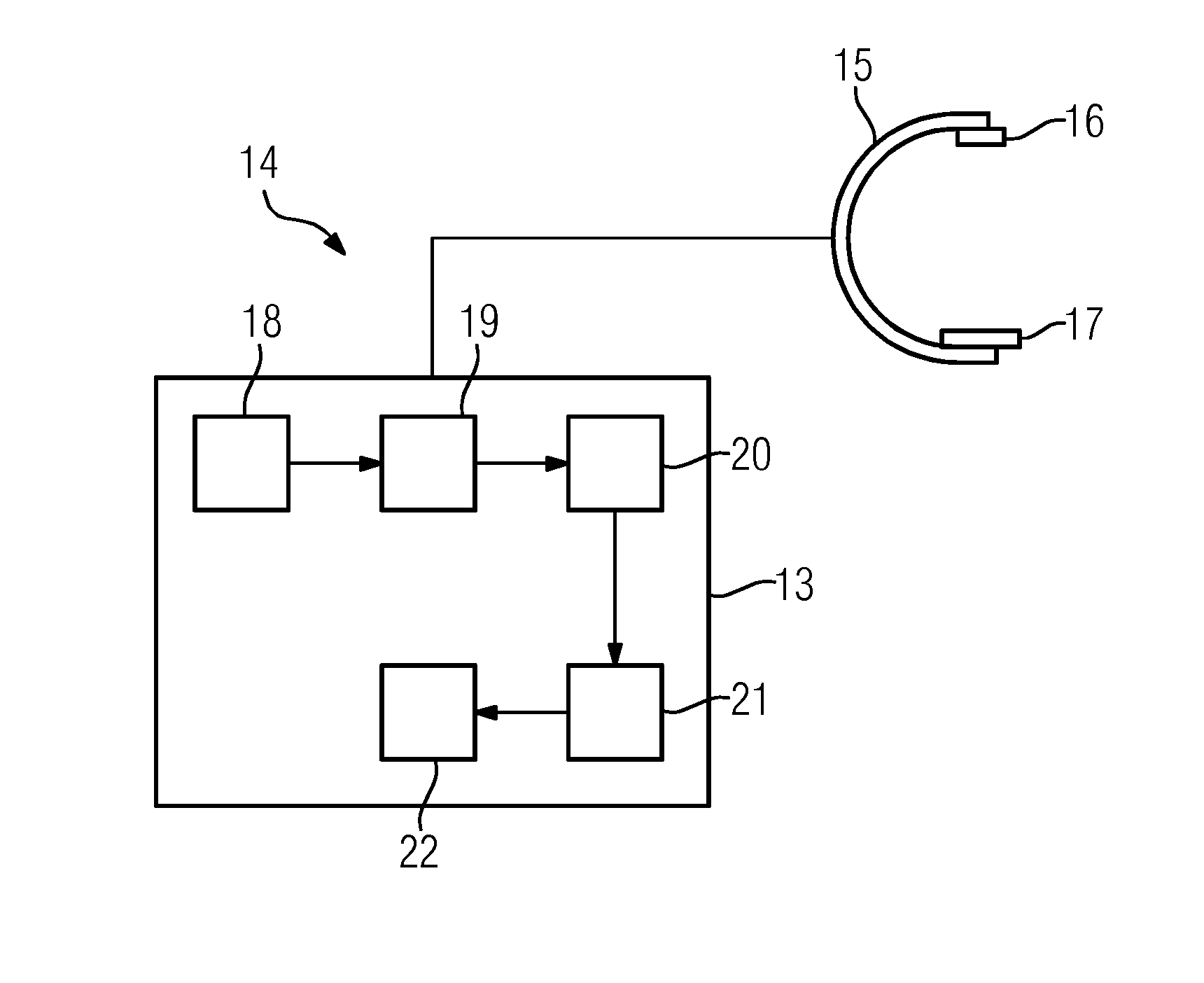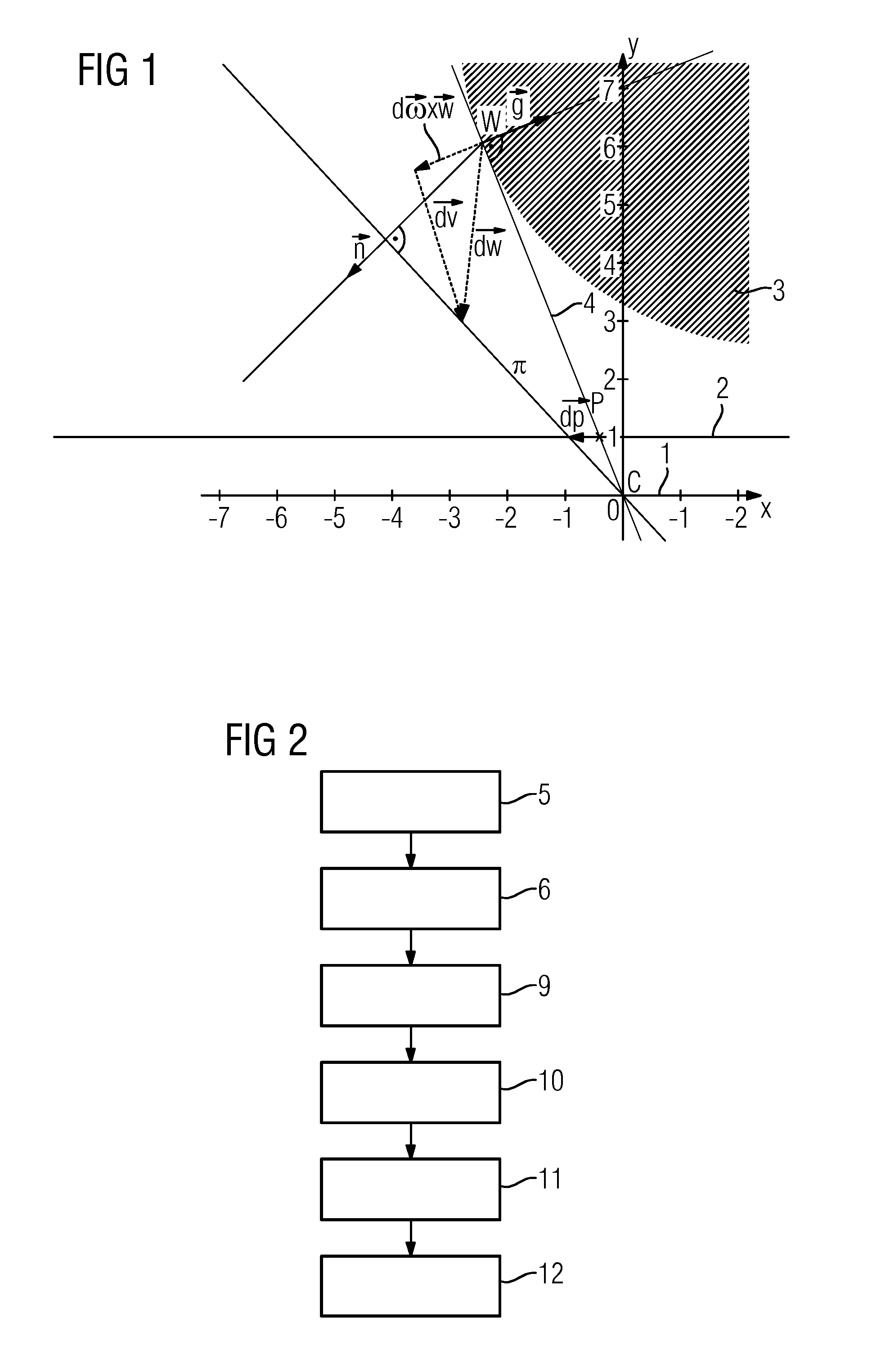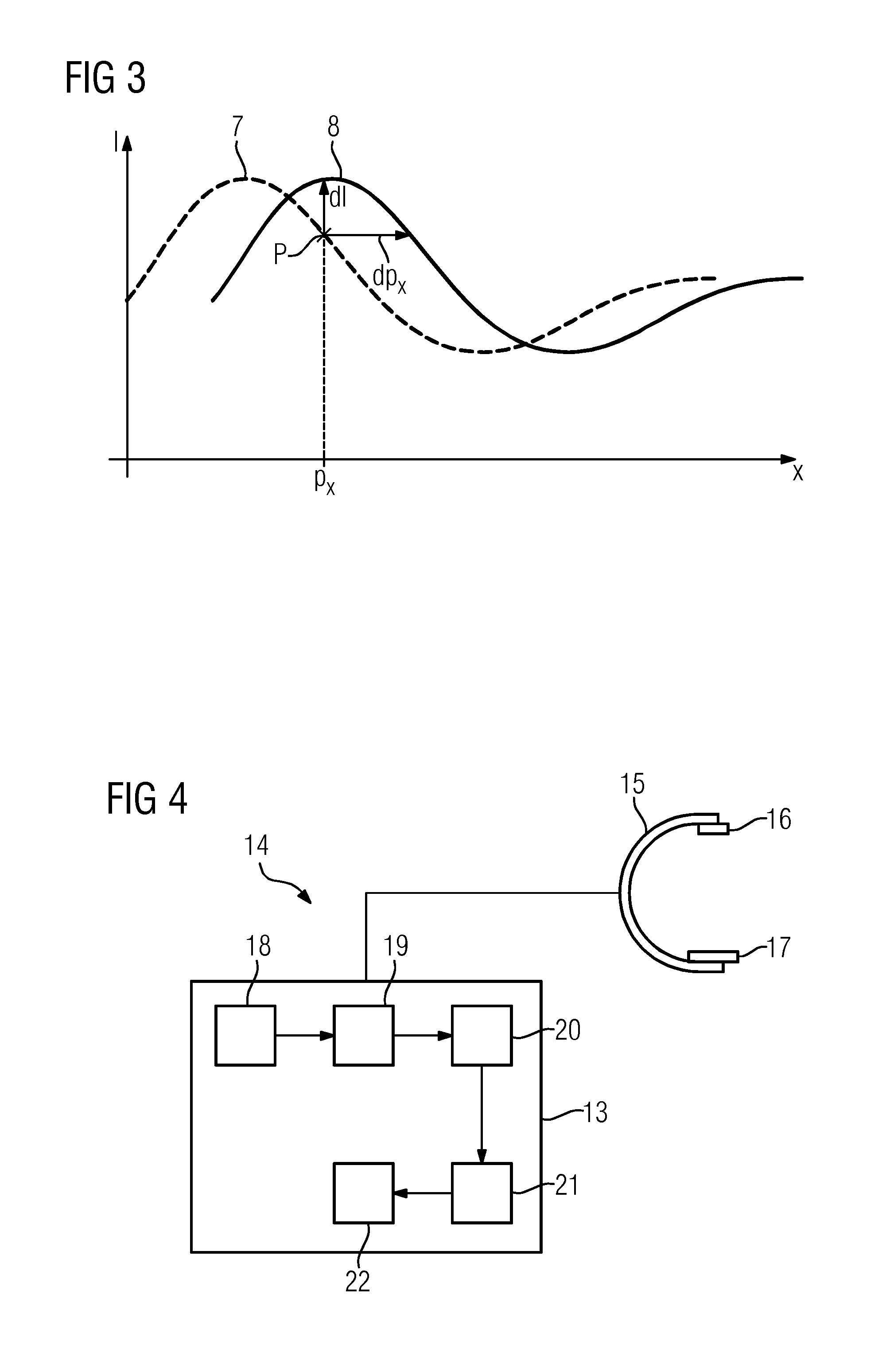Methods for Updating 2D/3D Registration on Movement and Computing Device
a computing device and 2d/3d technology, applied in image data processing, diagnostics, sensors, etc., can solve the problems of no simple solution for tracking patient movement in projection images, loss of depth information in projection images, and distraction of doctors from performing the process, so as to facilitate observation of contours
- Summary
- Abstract
- Description
- Claims
- Application Information
AI Technical Summary
Benefits of technology
Problems solved by technology
Method used
Image
Examples
Embodiment Construction
[0046]FIG. 1 shows an example of geometrical considerations that underlie methods in accordance with the present teachings, and explains the derivation and notations used herein. An x-y plane of a coordinate system 1 is shown wherein both the position of the three-dimensional image data set and the position of at least the first projection image are known (e.g., based on the 2D / 3D registration known for the first projection image). The above-described gradient vector g lies in the plane in FIG. 1. Points are represented by uppercase letters (e.g., the contour points W, P in the three-dimensional image data set or in the two-dimensional projection image). Vectors are shown by boldfaced lowercase letters. The vectors may be assumed to be column vectors, such that the scalar product between two vectors a and b results in aTb.
[0047]As shown in FIG. 1, the origin of the coordinate system 1 is chosen as the focal point C of the X-ray radiation source and used as the projection center. The...
PUM
 Login to View More
Login to View More Abstract
Description
Claims
Application Information
 Login to View More
Login to View More - R&D
- Intellectual Property
- Life Sciences
- Materials
- Tech Scout
- Unparalleled Data Quality
- Higher Quality Content
- 60% Fewer Hallucinations
Browse by: Latest US Patents, China's latest patents, Technical Efficacy Thesaurus, Application Domain, Technology Topic, Popular Technical Reports.
© 2025 PatSnap. All rights reserved.Legal|Privacy policy|Modern Slavery Act Transparency Statement|Sitemap|About US| Contact US: help@patsnap.com



